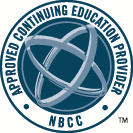Continuing Education Credits for PCBH Short Courses
CIPC works with a variety of accrediting bodies to provide credits for a broad array of licenses, reflective of the integrated team methods we support and teach. State licensing boards often vary in what credits they will accept, if your licensure does not seem to be covered or if you have questions, we recommend that you contact your state's board.
Please note that all requirements must be completed by the end of the course, otherwise we will be unable to submit your transcript for Continuing Education credits. Processing and delivery time can take 6-8 weeks from the last day of the course.
All CE certificates will be emailed to participants.

For whom: MD, DO, NP, PA, MA
- Short Course 1: Creating & Managing an Integrated Primary Care Practice, 2.5 CEs
- Short Course 2: Bio-Psycho-Social Treatment, 6.5 CEs
- Short Course 3: Dealing with Substances & Pain in Primary Care, 7.75 CEs
- Short Course 4: Behavioral Health & Pediatrics, 4 CEs
- Short Course 5: Serious Mental Illness, 4.25 CEs
- Short Course 6: Population Health, 4.5 CEs
- Short Course 7: Families, Community, Culture, 4.5 CEs
What organizations are accepted by AAFP: Click here to view
AAFP Prescribed credit is accepted by the American Medical Association as equivalent to AMA PRA Category 1 Credit™ toward the AMA Physician's Recognition Award.
When applying for the AMA PRA, Prescribed credit earned must be reported as Prescribed credit, not as Category 1.
AAFP-certified CME Activities for American Osteopathic Association Credit CME activities approved for AAFP credit are recognized by the AOA as equivalent to AOA Category 2 credit.
College of Family Physicians of Canada (CFPC) Agreement Members of the College of Family Physicians of Canada are eligible to receive (MAINPRO-M1, MAINPRO-M2, or MAINPRO-C) credits for participation in this activity due to a reciprocal agreement with the American Academy of Family Physicians.


For whom: Social Workers
Approved by: National Association of Social Workers
How many credits:
- Short Course 1: Creating & Managing an Integrated Primary Care Practice, 2.5 CEs
- Short Course 2: Bio-Psycho-Social Treatment, 6.5 CEs
- Short Course 3: Dealing with Substances & Pain in Primary Care, 7.5 CEs
- Short Course 4: Behavioral Health & Pediatrics, 4 CEs
- Short Course 5: Serious Mental Illness, 4 CEs
- Short Course 6: Population Health, 4.5 CEs
- Short Course 7: Families, Community, Culture, 4.5 CEs
Please click here to see approved states
(if your state is not approved you may be able to file an application with your state's chapter)

For whom: Certified Counselors (LPC/LMHC/SAC/NCC/LMFT)
Approved by: National Board for Certified Counselors
How many credits:
- Short Course 1: Creating & Managing an Integrated Primary Care Practice, 3.24 CEs
- Short Course 2: Bio-Psycho-Social Treatment, 8 CEs
- Short Course 3: Dealing with Substances & Pain in Primary Care, 7.75 CEs
- Short Course 4: Behavioral Health & Pediatrics, 5 CEs
- Short Course 5: Serious Mental Illness, 4.5 CEs
- Short Course 6: Population Health, 4.5 CEs
- Short Course 7: Families, Community, Culture, 4.75 CEs
The Center for Integrated Primary Care has been approved by NBCC as an Approved Continuing Education Provider (ACEP No. 6842). Programs that do not qualify for NBCC credit are clearly identified. the Center for Integrated Primary Care is solely responsible for all aspects of the programs.
Note: Each profession has their own continuing education approval requirements depending on the state in which the professional is licensed. To the best of our knowledge, all 50 states accept NBCC credit for most licensed counseling and therapy professions. We recommend double checking with your particular state licensure board.
